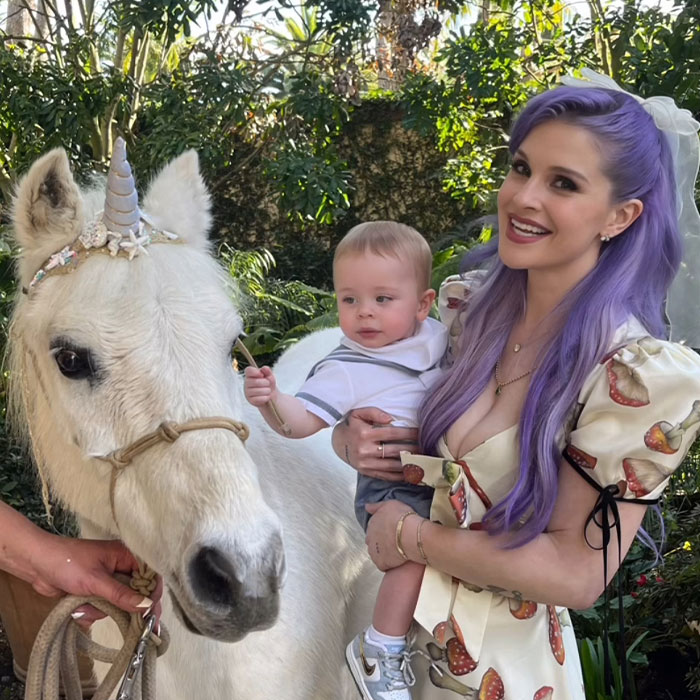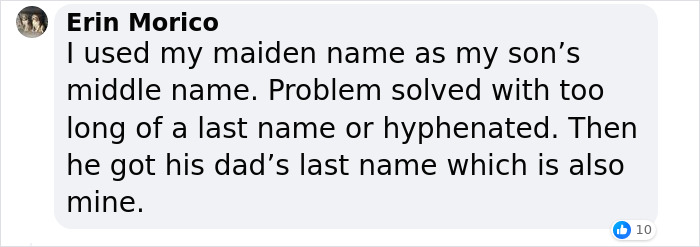Kelly Osbourne, after a major disagreement with her partner Sid Wilson, is now planning to change her baby son’s name to reflect both parents, marking a significant decision amidst their journey as new parents and Kelly’s postpartum recovery journey.
The 39-year-old reality star recently told her parents, Sharon and Ozzy Osbourne, in a new episode of The Osbournes Podcast: “This is personal, and I didn’t expect to ever talk about this, but I’m going to.
“It’s the biggest fight me and my baby’s father have ever, ever, ever had, and probably ever, ever, will.”
Sidney, the turntablist for the heavy metal band Slipknot, and Kelly welcomed their son Sidney in November 2022.
Kelly explained: “I wanted our son to have both of our last names, and he wouldn’t let me. We had a huge fight. I feel that I was forced into doing something I didn’t wanna do.”
Kelly Osbourne, after a major fight with Sid Wilson, is now planning to change her baby son’s name to reflect both parents

Ultimately Kelly had the last word because Sidney “isn’t an Osbourne in name”.
The TV personality admitted that while she may not be quite ready to forgive Sidney, who she’s dated since early 2022, for that decision, they’re working through it, as per E! News.
The mom-of-one continued: “Right now, my son doesn’t have a double-barreled last name. But, after lots of eye-opening conversations and some couples’ therapy, he has seen the light.”

“We are going to legally change our son’s name to have both of our last names.”
She added: “We both made our child, so he should have both of our last names.”
While Kelly initially disagreed with Sidney’s beliefs, she said she understood why he was so adamant about their son’s last name since “Sid comes from a really traditional English family.”
Sidney, who is also known as Sid Wilson, was born in Des Moines, Iowa. However, both of his parents are from England.
Kelly opened up about the name fight to Sharon and Ozzy Osbourne in a new episode of The Osbournes Podcast

During the podcast episodes, Kelly’s parents applauded the couple’s recent decision, with Ozzy saying: “It’s crazy that the person who grew that child inside of them didn’t have the same name.”
Back in January, Sharon had announced the birth of her grandson during an appearance on Britain’s The Talk.
At the time, she said of her daughter: “So great, so great. She won’t let a picture go out of him, and I’m so proud of her.”
Kelly had first shared publicly she was pregnant last May with a sonogram pic on Instagram, as per CNN.

She wrote: “I know that I have been very quiet these past few months so I thought I would share with you all as to why.
“I am over the moon to announce that I am going to be a Mumma.”
Since welcoming baby Sidney last year, Kelly has been open about her parenthood journey.
In September 2023, she told E! News “I’m a mom now, I love it. It’s the best thing that has ever happened to me.
“It’s scary as f–k because you don’t want to make a mistake.”
Sidney, the turntablist for the heavy metal band Slipknot, and Kelly welcomed their son Sidney in November 2022

Kelly, who was diagnosed with gestational diabetes “well into my third trimester,” told People in September 2022: “So it wasn’t like I developed it as some people get it from the get-go when they’re pregnant. I got it in my third trimester and basically, I thought it was something that I had done wrong.”
Her only pregnancy craving had been sugar, especially sweet drinks, Kelly explained, and even though she tried to moderate it by drinking fresh-pressed juice, “it still had a lot more sugar than I needed.”
According to the NHS, gestational diabetes is high blood sugar (glucose) that develops during pregnancy and usually disappears after giving birth.
It can happen at any stage of pregnancy but is more common in the second or third trimester.
Moreover, it happens when the body cannot produce enough insulin – a hormone that helps control blood sugar levels – to meet the extra needs during pregnancy.
Gestational diabetes can cause problems for the pregnant person and their baby during pregnancy and after birth. However, the risks can be reduced if the condition is detected early and well-managed.
Kelly’s recent baby name revelation divided readers













.png?w=600)



